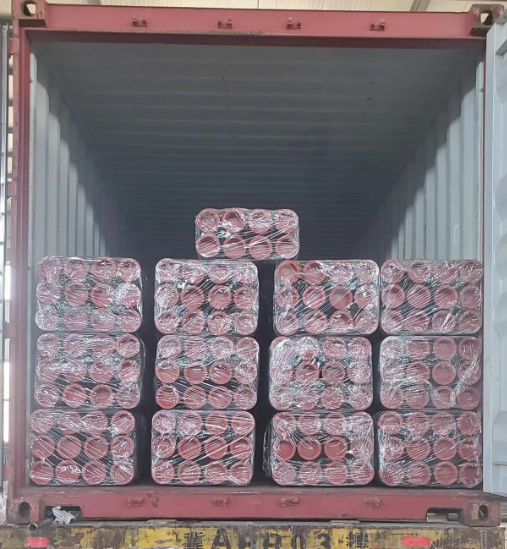Jul . 23, 2024 14:26 Back to list
Wholesale Suppliers of 5L ERW Steel Pipes for Various Industrial Applications and Projects
The Rise of Wholesale API 5L ERW Steel Pipe Suppliers
In the modern industrial landscape, the importance of high-quality steel pipes cannot be overstated. Among the various types of steel pipes, Electric Resistance Welded (ERW) steel pipes are particularly notable for their versatility and strength. Adhering to the API 5L standard, these pipes are commonly used in the oil and gas industry, water distribution, and various infrastructure projects. With the increasing demand for such products, wholesale API 5L ERW steel pipe suppliers have become pivotal in the supply chain.
Understanding API 5L ERW Steel Pipes
API 5L is a specification developed by the American Petroleum Institute (API) that covers seamless and welded steel line pipes. ERW pipes, specifically, are manufactured by rolling steel strips and welding them along the seam. This method results in pipes that have higher mechanical properties and excellent dimensional accuracy, making them ideal for critical applications. API 5L ERW pipes can be used for transporting gas, water, and oil in transmission pipelines, making them essential for energy transportation.
The Advantages of Wholesale Suppliers
The role of wholesale suppliers in the market cannot be underestimated. Wholesale API 5L ERW steel pipe suppliers typically offer bulk purchasing options, which can significantly reduce costs for businesses. By cutting out middlemen, these suppliers provide competitive pricing, making it easier for manufacturers and contractors to stay within budget for large-scale projects.
Moreover, wholesale suppliers often maintain extensive inventories of various sizes and grades of ERW pipes, allowing for quicker turnaround times. This stock availability can be a lifeline for contractors who need to procure materials promptly to keep their projects on schedule. The flexibility in supply also enables clients to handle unexpected changes in project scope without incurring excessive delays.
Quality Assurance
wholesale api 5l erw steel pipe suppliers

Quality is a paramount concern in the steel pipe industry. Established wholesale API 5L ERW steel pipe suppliers adhere to stringent quality control measures to ensure that the pipes meet the necessary standards. Most suppliers conduct rigorous testing, including hydrostatic tests, to verify the strength and integrity of the pipes. Certifications such as those from ANSI or ISO can further assure clients of the quality and reliability of their products.
Customization and Services
Besides just supplying pipes, many wholesale suppliers also offer customization options to meet specific project requirements. This could include providing different pipe diameters, wall thicknesses, and lengths, as well as special coatings or treatments to enhance corrosion resistance. Furthermore, suppliers often support their clients with additional services like logistics and technical advice, which can prove invaluable for optimizing project efficiency.
The Growing Demand
The global demand for API 5L ERW steel pipes is on the rise due to several factors, including ongoing infrastructure development, the expansion of oil and gas projects, and a rise in water management systems. Developing economies are particularly contributing to this trend as countries invest in their energy sectors and infrastructure.
As a result, wholesale suppliers who specialize in API 5L ERW steel pipes are well-positioned to benefit from this market growth. However, they must also be prepared to face challenges such as price volatility in raw materials, competition from international suppliers, and the need for sustainable practices in order to remain viable.
Conclusion
The emergence of wholesale API 5L ERW steel pipe suppliers represents a significant evolution in the material supply chain. By providing cost-effective solutions, ensuring quality, and offering customized services, they are meeting the growing demands of various industries with efficiency. As the world continues to develop and the need for robust infrastructure expands, these suppliers will undoubtedly play an essential role in shaping the future of construction and energy sectors.
-
High Quality Mild Steel Pipe Manufacturers in China for Exporting Premium Industrial Solutions
NewsAug.01,2024
-
Exploring Key Characteristics of Wholesale API Steel Pipes for Your Business Needs
NewsAug.01,2024
-
Current Wholesale Prices for ERW Steel Pipes in the Market Right Now
NewsAug.01,2024
-
Exploring the Diverse Applications and Benefits of China Round Steel Pipes in Construction and Industry
NewsAug.01,2024
-
Top Quality API 5L ERW Steel Pipe Manufacturer Offering Reliable and Durable Solutions for Your Needs
NewsAug.01,2024
-
Reliable Supplier of Premium Quality Concrete Pipes for Durable Construction Projects
NewsAug.01,2024